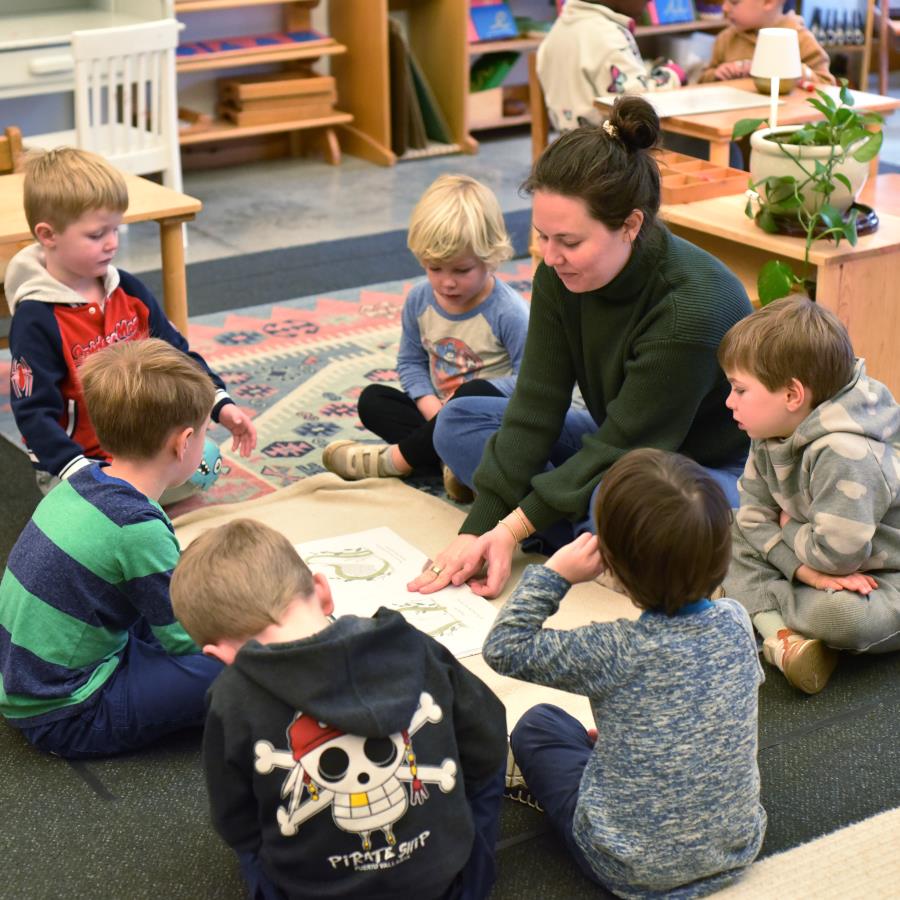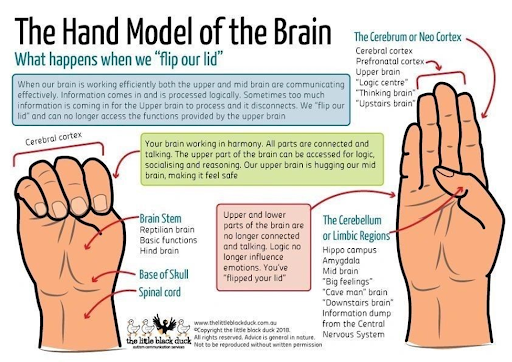Can you think of a time when your child was in a full-blown state of dysregulation? Have you ever found yourself trying to reason with them in that moment and then become frazzled yourself because they are not open to hearing you? Research today tells us that when any human is experiencing this level of heightened emotion, parts of the brain responsible for reasoning become inaccessible. This is beautifully explained with the “flipped lid” model.
How do we help our children learn skills necessary to cope? Dr. Montessori knew the importance of a neutral state of mind. It is through “Grace and Courtesy” lessons that an adult models certain desired/appropriate behaviors/movement. She understood the importance of allowing children opportunities to practice these skills before they need them. Practicing effective coping skills is a great way to prepare children for those big emotions.
Another tool that has proven to be incredibly effective for children is something called “social stories.” Social stories are books originally created by Carol Gray to help children experiencing Autism cope and find success with the world around them. We now know that these stories can benefit and support all children. They are visual and verbal reminders from the child's perspective of what to do or what to expect when specific situations arise.
A favorite social story of ours talks about anger. The social story:
- Gives language for the emotions such as: being mad, angry or frustrated
- Validates those feelings without shame
- Lists all the ways the child might express their anger
- Sets boundaries on appropriate responses to feeling angry (not hurting others)
- Gives ideas of how to cope
- Naming the emotion
- Talk to a friend or family member
- Ask an adult for help
- Taking deep breaths
- Listen to music, go for a walk, get a sip of water, etc.
- Statement that this feeling won’t last forever, and they can help it pass by quicker if they use a coping strategy
Other situations that social stories can be helpful for:
- Upcoming transitions
- Sleep
- Toileting
- Waiting my turn
- Hitting and pushing
- Change of routines
- Respecting other’s personal space
- Voice volume control
- Greeting others
- And so many more!
These books are meant to be read, not in the moment but rather routinely throughout their day during neutral moments. If you find yourself stuck on how to support your child through a challenging season, consider using the power of a social story. Here are few great resources if you would like to learn more:
https://www.andnextcomesl.com/p/printable-social-stories.html

